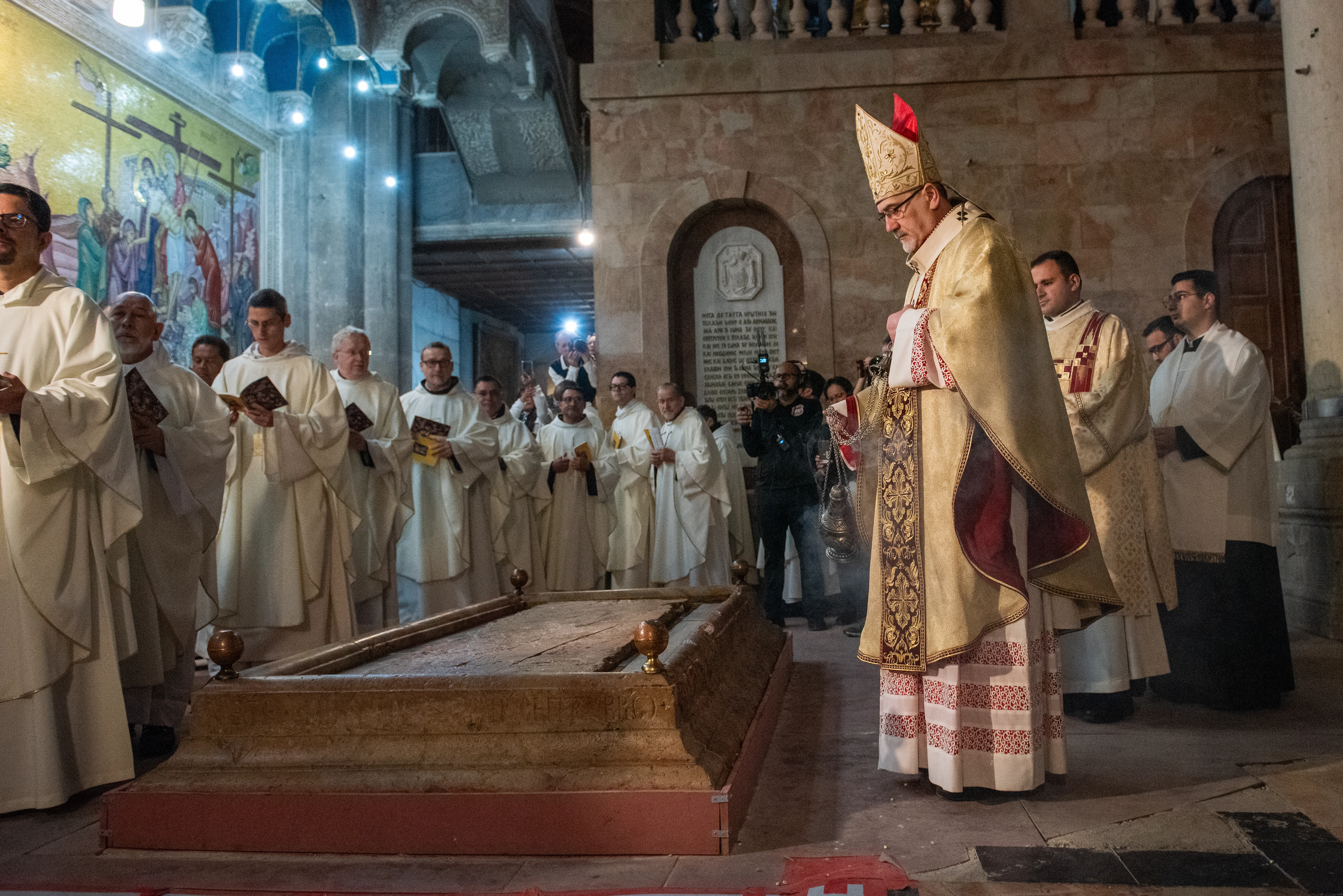On the discordant relationship between parents, the Professor in Psychology who has previously served in academic administration at Nairobi-based Tangaza University College (TUC) explained, “Children who grow up seeing fights between parents who claim to be Christians may lose their faith in God. Research has found that divorced parents are better than discordant ones when it comes to a child’s religious upbringing.”
Participants in the study also shared, in the narrative form, situations that had triggered their abandonment of Christianity. Triggers here included social tragedies such as Kenya’s Post-Election Violence of 2007-2008, ill-treatment by Church leaders, as well as rejection of the sexual minority.
“Many Kenyans were affected by the post-election violence in 2008, and many, especially those who lost their families, stopped going to Church and have not been there since. They saw their fellow Christians turn against them because of tribalism,” Fr. Selvam said.
He added, “Cases of ill-treatment by Church leaders have also been found to be triggers of abandonment. Some participants in the study said that Church leaders had refused to accord their loved ones burial rights, despite them having been good members of a particular Church. After the burial, aggrieved family members never set foot in Church again.”
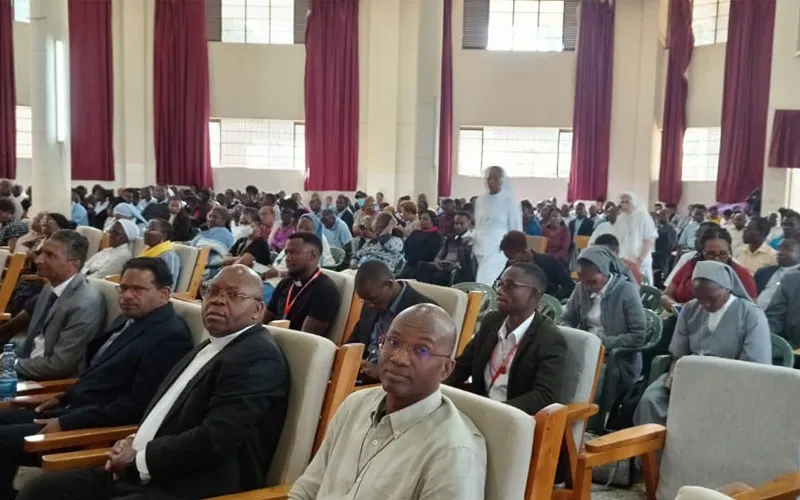 Credit: ACI Africa
Credit: ACI Africa
(Story continues below)
Other young people in the study disclosed that they had stopped going to Church when they were condemned because they preferred to be in same-sex relationships.
Those who had stopped going to Church, Fr. Selvam said, had resorted to “meaning-seeking” outside Christianity.
A participant in the study said, “Often, I think of topics like what’s the meaning of life? What’s our origin? What happens after death? Christianity failed to answer me.”
Another participant said, “I want to be genuine, alright. Let me take one step wholly. I have followed the Christian path, but there was a gap. So, I adopted the African way.”
Still, another participant shared an “agonizing” path of abandoning Christianity, saying, “Losing your faith is not an easy choice. For me, it was agonizing. Remember, I grew up in the Church for 23 years. And now, I am confronting the idea that maybe everything I was told might not be true. Deconditioning myself isn't easy.”
Mr. Githinji who made a presentation on “Value Systems among Secularized Young Adults” at the February 17 report launch noted that though the lapsed Christians had adopted other ways of spirituality, many of them still considered Christianity important.
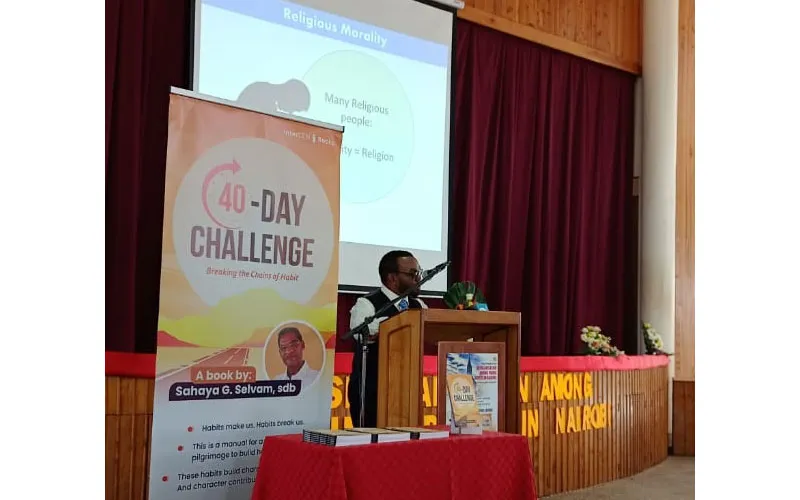 Credit: ACI Africa
Credit: ACI Africa
The study also sought to investigate what those who stop practicing Christianity adopt as their new moral compass, and how they judge right from wrong. The researchers sought to find out whether there still exists traces of religious morality in lapsed Christians, and also whether these people adopt a materialistic outlook in life as opposed to ethics and morality.
“The assumption was that those who abandon Christianity are more materialistic and they disregard moral values. But from our study, this couldn't be further from the truth,” Mr. Githinji, a Consultant at Don Bosco Youth Educational Services (DBYES), said.
“Those who no longer practiced Christianity claimed that the Church is more concerned about money. Some even gave this as their reason for leaving. Some narrated that so many Churches had sprung up and that there was a lot of competition among them for material gain,” Mr. Githinji said.
The research consultant said that what those that have abandoned Christianity are practicing now is “an intersection of religious and African morality.”
“There is a convergence between African morality and religious morality. Both of them uphold the dignity of the human person, community, and interdependence, as well as justice and fairness. Urbanized youth live in the intersection of religious and African morality,” he said.
Those who had abandoned Christianity shared that they were guided by the Golden Rule, which talks about “doing unto others what you would wish to be done to you”.
Others shared that they were employing social morality, and forming their own group rules of morality, which everyone adhered to.
Still, some embrace humanism, Mr. Githingi said, and explained, “These are mostly atheists and those who follow atheists closely. They claim that people can live better, not through prayers, but by actions.”
All of them denied the authenticity of the Bible, claiming that "rules for morality are not found in scripture but cine to one naturally," Mr. Githinji recalled.
Speaking at the February 17 research report launch, Bishop Alfred Kipkoech Rotich of Kenya’s Kericho Diocese said that the study by Fr. Selvam and his team was eye-opening, especially concerning the realities of young people.
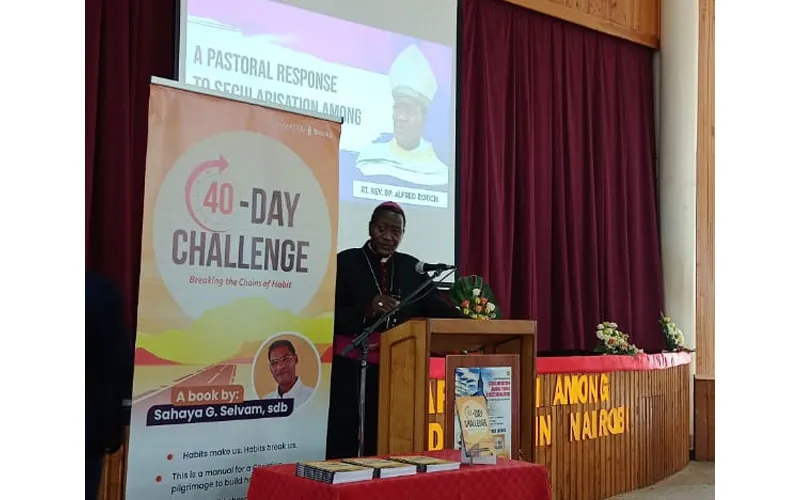 Credit: ACI Africa
Credit: ACI Africa
In his presentation titled, “A Pastoral Response to Secularization among Young Adults”, Bishop Rotich underlined the need for pastoral agents to always accompany families to ensure that children receive a solid Christian upbringing.
“We need to have pastoral centers and parish halls to interact with people who come to worship; to find out how they are doing. We need to give them the message that the Church is available, that the Church listens, the Church discerns, and the Church loves them," he said.
The Kenyan Catholic Bishop who has been at the helm of Kericho Diocese since December 2019 added, "We need evangelizers who are empowered to accompany the people."
"One area that needs this accompaniment is the family," Bishop Rotich said, and posed, "What are we doing to take care of the family? When there is a separation, a mother may walk away with her daughter. In such a case, the child is given everything a mother can give but not the father’s image. This child may end up seeking solace in another woman who is like her mother."
The Catholic Bishop who started his Episcopal Ministry in March 1996 as Auxiliary Bishop of Nairobi Archdiocese noted that the Catholic Church in Kenya already has a robust program for the family.
He said that in the Church in Kenya, formation takes a minimum of one year, including marriage preparation, adding, "And it doesn't end there. This couple must be accompanied."
Also requiring utmost attention are the youth, Bishop Rotich said, noting that though some parishes have elaborate programs for young people, the parishes still need interventions for the challenges that the youth face.
"We may see our young people sing and dance happily in church, and yet they go back to their deep challenges back at home. We need to be close to them, to know their worries and concerns," the Catholic Church leader who served as Bishop of the Military in Kenya from 1997 till his retirement in July 2016 said.
He said that the mission of the Church is not just to give the sacraments, "but to accompany the people; to find out how they are doing and their struggles."
"We have to make friendships with those who feel like outsiders, to share our faith with them, to make them witnesses of our faith. We must present to them Christ’s story of healing and invite them to conversion. Finally, we must integrate them back into the community of God where they belong. These people need healing, and this is the mission of the Church," Bishop Rotich said.
Meanwhile, Fr. Selvam has warned that the number of Christians may go down soon if nothing is done, and if young people are allowed to continue ditching the religion.
 Credit: ACI Africa
Credit: ACI Africa
“Things are slowly changing in the Catholic Church in Africa. It is like a frog that has refused to jump out of boiling water," Fr. Selvam told ACI Africa when he spoke about his book for Lenten reflection, “40-Day Challenge: Breaking the Chain of Habit”, which was also launched on February 17.
The Nairobi-based Salesian Priest added, "If we are not careful, what is happening in the States, where the number of Christians has gone down, may happen to us soon. This is already happening in Nairobi."
Agnes Aineah is a Kenyan journalist with a background in digital and newspaper reporting. She holds a Master of Arts in Digital Journalism from the Aga Khan University, Graduate School of Media and Communications and a Bachelor's Degree in Linguistics, Media and Communications from Kenya's Moi University. Agnes currently serves as a journalist for ACI Africa.



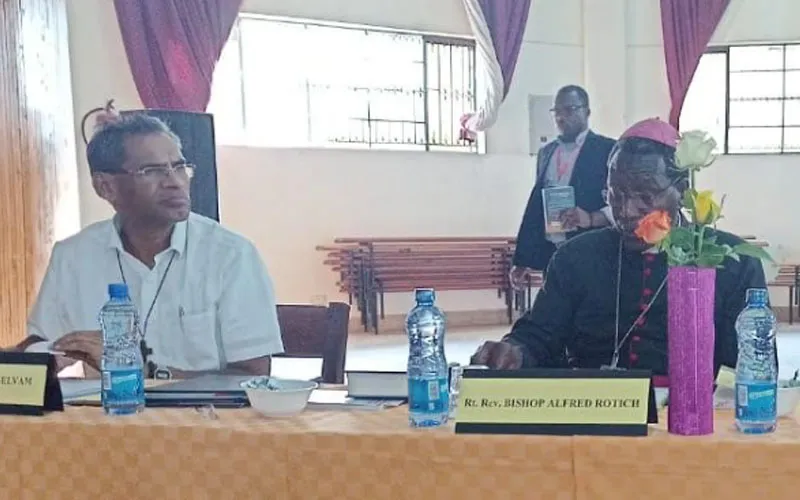
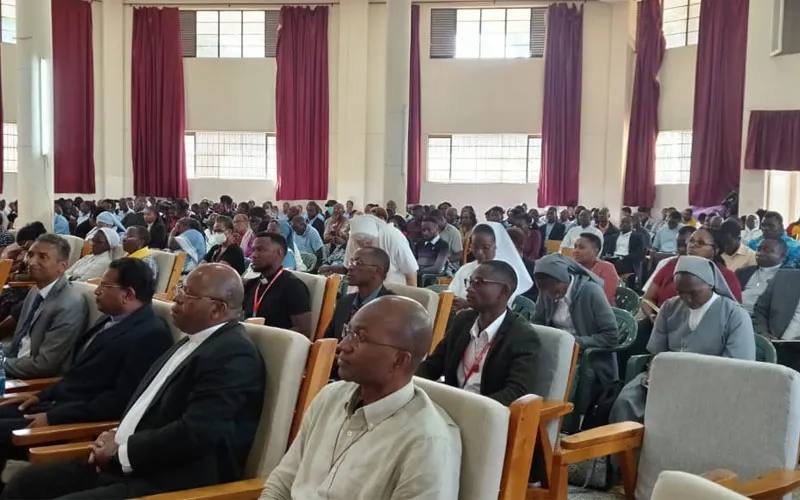 Credit: ACI Africa
Credit: ACI Africa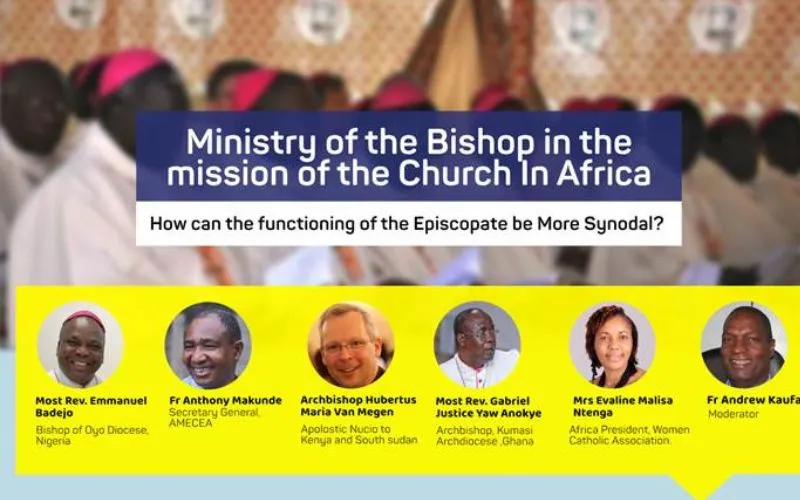
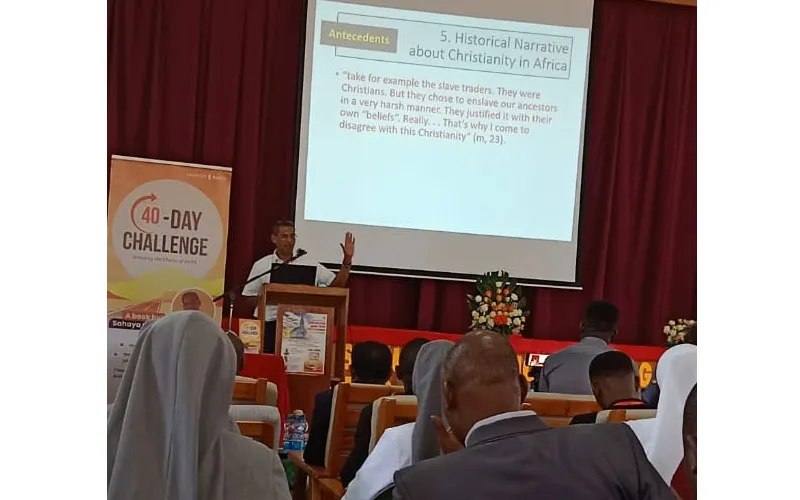 Credit: ACI Africa
Credit: ACI Africa Credit: ACI Africa
Credit: ACI Africa Credit: ACI Africa
Credit: ACI Africa Credit: ACI Africa
Credit: ACI Africa Credit: ACI Africa
Credit: ACI Africa
